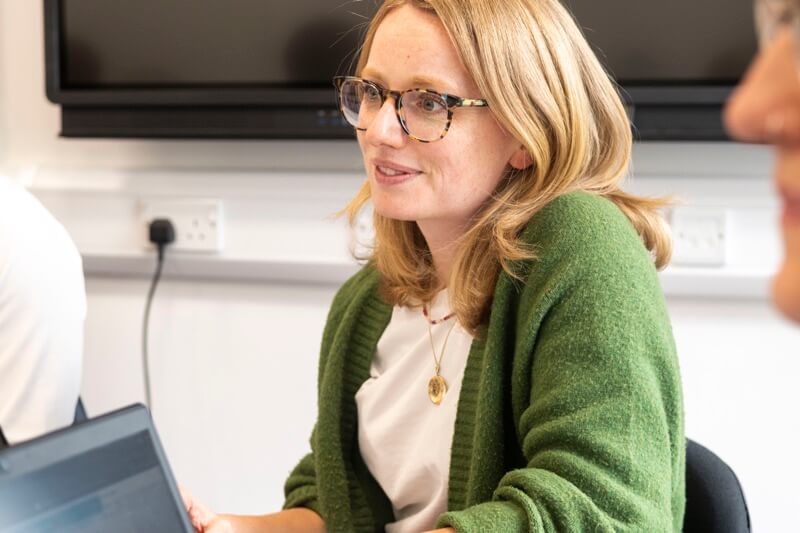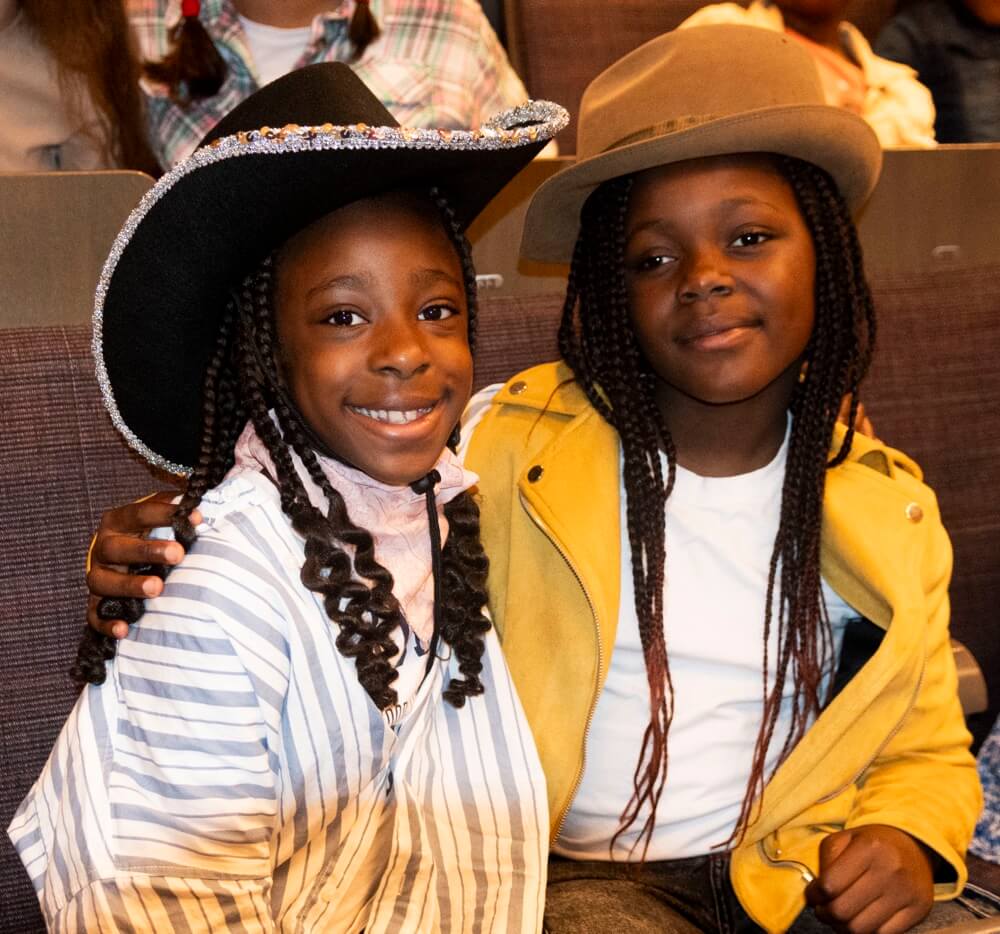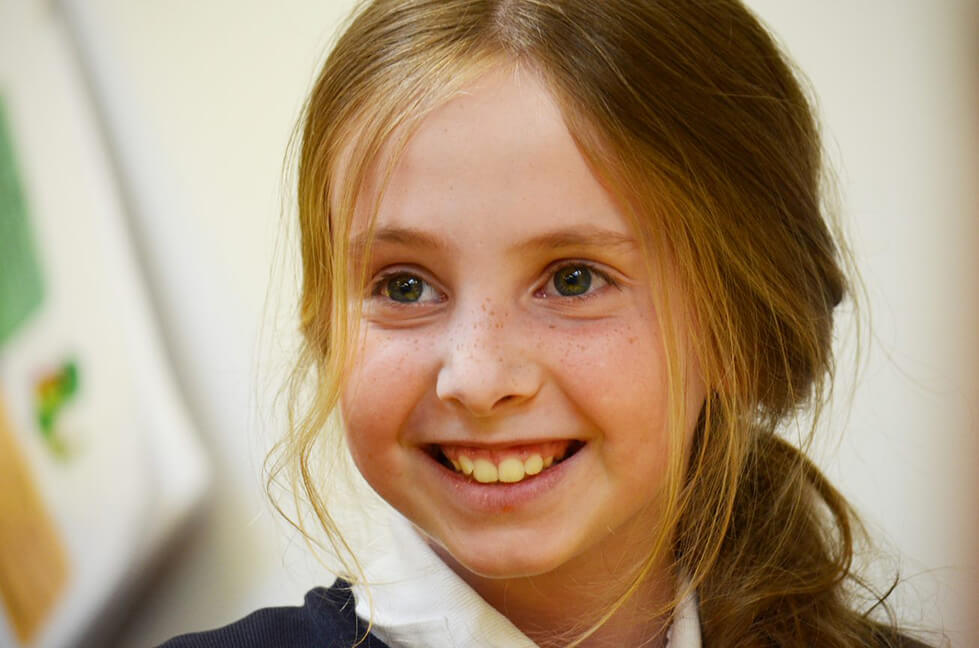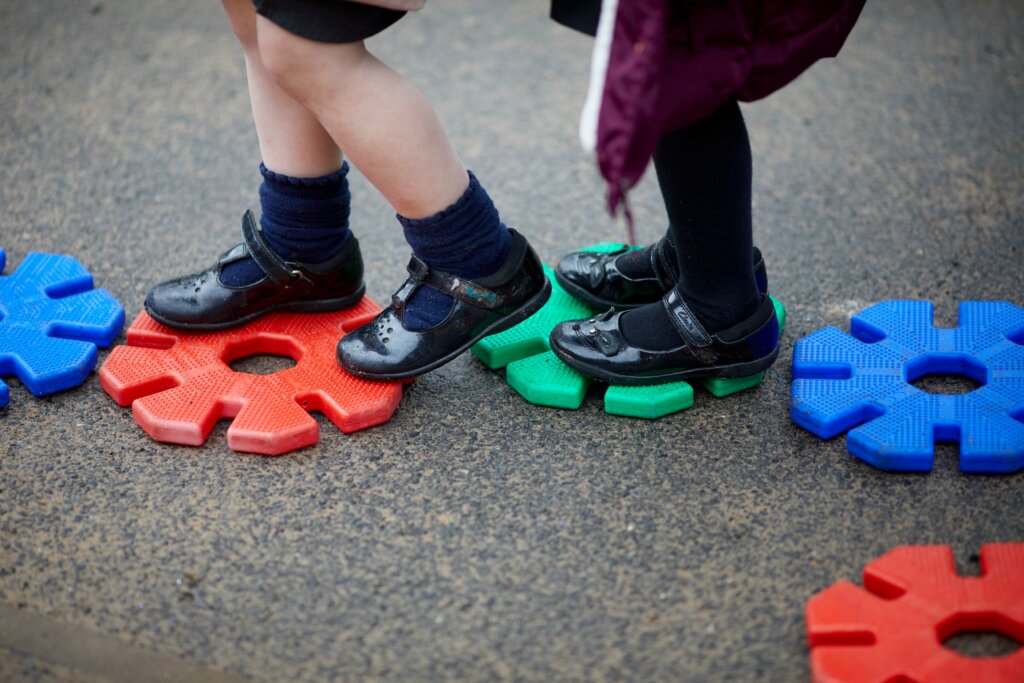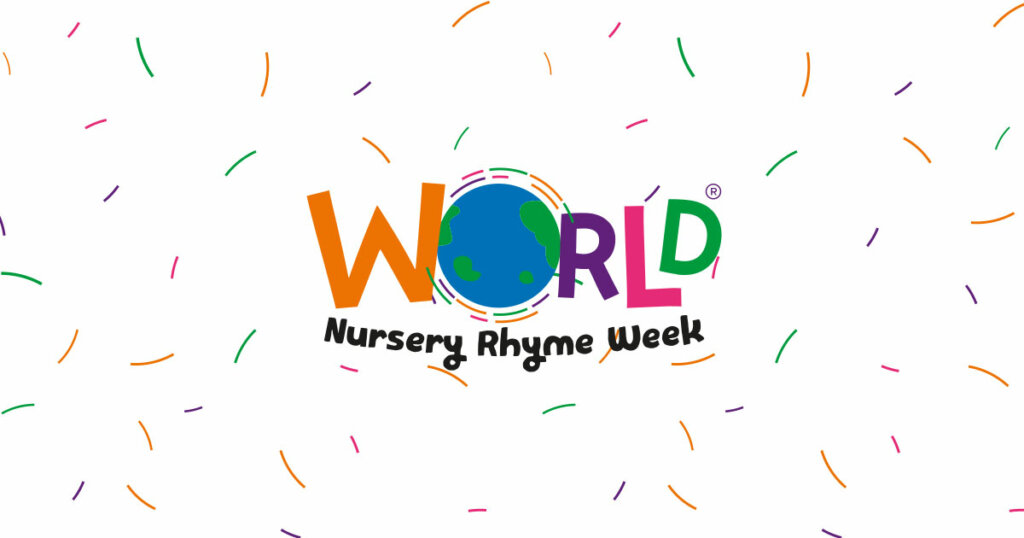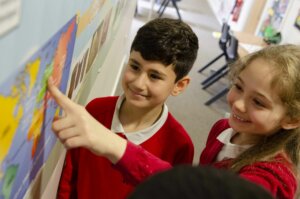It’s World Nursery Rhyme Week so we thought we would reflect on the importance and value of immersing our early learners in the world of nursery rhymes. There is an abundance of research out there which highlights the benefits that nursery rhymes have to offer children in early years, and we are going to explore just a few of these, along with some practical ideas of how to get more nursery rhymes and singing into your EYFS!
This year the rhymes a day are:
- Monday 14th November: The Big Ship Sails
- Tuesday 15th November: 12345 (Once I Caught A Fish Alive)
- Wednesday 16th November: Five Little Speckled Frogs
- Thursday 17th November: B.I.N.G.O
- Friday 18th November: Twinkle, Twinkle
Join in with the global celebration of nursery rhymes by registering with worldnurseryrhymeweek.com and gain access to a wealth of resources.
Why is it so important to share nursery rhymes with our early years’ children?
Studies have shown that rhyme awareness is a predictive indicator of a child’s success in learning to read. This is because they are able to make phonemic links with rhyming patterns, and they are more likely to enjoy and join in with the rhyming elements of stories too!
The beauty of learning nursery rhymes is that it is universally accessible to everyone, regardless of our socio-economic background. It’s amazing, as adults, how many nursery rhymes we know off by heart from our own childhood.
However, our recent experience and research suggests that children are joining early years with a limited knowledge of nursery rhymes. This may be because parents are not confident, aware or understand the value of sharing rhymes at such an early age. So, as a profession, we need to reflect on this and think about how we can best support our families to share and enjoy rhymes together.
When you stop and think about all the learning that takes place when children hear and then retell a nursery rhyme, it is actually quite astounding! Not only are they acquiring new vocabulary, playing with literary devices like alliteration, onomatopoeia and rhyme, developing early counting skills and making sense of the world around them – but they are engaging in a joint and enjoyable experience. They learn about fluency, when to stress and emphasise certain words or phrases, and how to be expressive. Children also develop their physical skills by coordinating their bodies to join in with the actions in some rhymes.
Nursery rhymes are perfect tools to support emotional and cognitive development as children empathise with characters in the rhymes and develop their working memory to remember the next lines or verses. All these benefits contribute to the holistic development of the child and help to lay the foundational skills needed for life-long learning.
So, how can we get more nursery rhymes into our early years?
- Get together with your Early Years Team and walk around your environment – where are there great opportunities for you to sing nursery rhymes?
What about in the home corner? You could sing Polly Put the Kettle on, I’m a Little Teapot, 10 fat Sausages Sizzling in a pan, and Hush Little Baby. There are so many to choose from, can you think of anymore?
Take this approach with all other areas, especially where there are enhancements or in the small world area, and just marvel at how many nursery rhymes you can come up with. Then, when children are playing in provision, join them and start a sing song. I promise you, before you know it, you will hear children singing nursery rhymes in their own play.
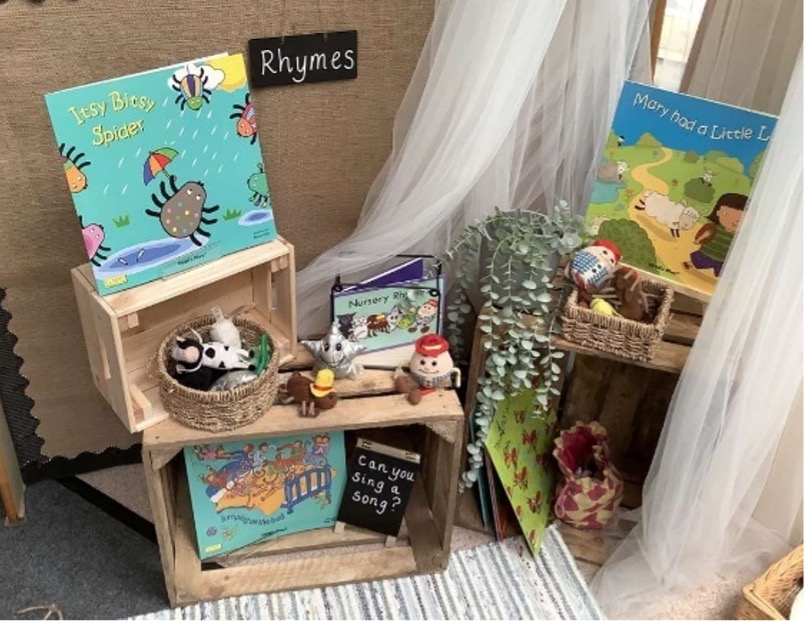
- Do you have nursery rhyme props in your environment so that children can access these all day long?
A great way to do this is to have a basket/box full of puppets or props for children to independently play with. This could also be used during carpet time and singing sessions, helping the children choose a nursery rhyme they would like to join in with. At Holden Clough Community Primary School in Ashton-under-Lyne, they have a lovely nursery rhyme station where children can sit and choose a nursery rhyme prop or story to play with.
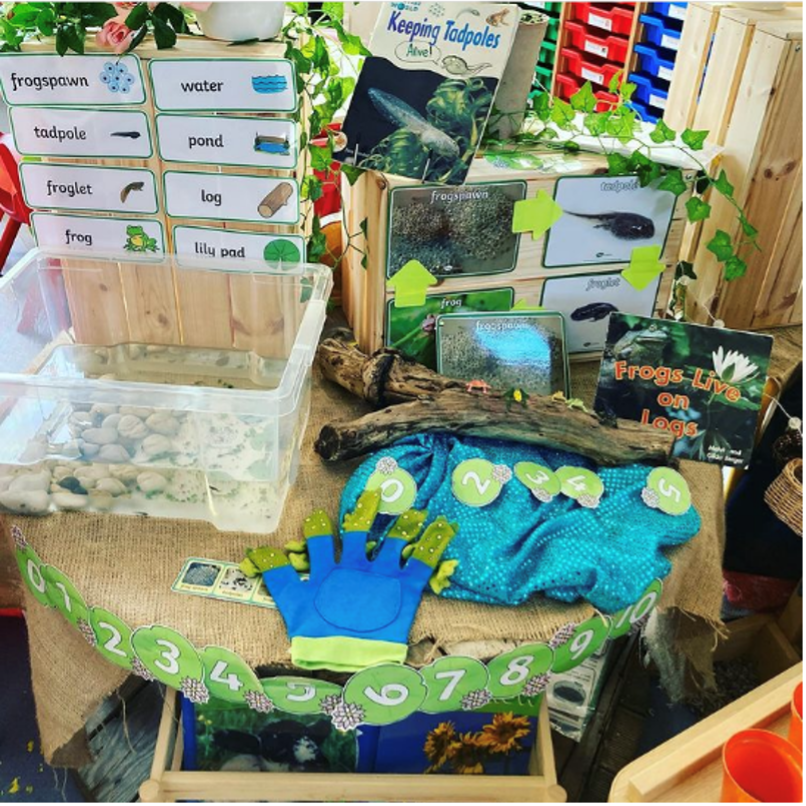
- The maths area is the perfect space to encourage singing along to counting nursery rhymes and songs
It’s a highly effective way to support emergent maths skills like counting and promoting their understanding of the number system. At St. Clare’s RC Primary School in Bradford, they have made links across all areas of learning to Five Little Speckled Frogs – a beautiful opportunity for children to practise singing the counting song and learn more about frogs! Check out our free resource with ideas of related Storybooks and songs that can help teach mathematical concepts in EYFS.
- The Reading Framework suggests that nursery rhymes and songs are listed for each year group, have you done this for your early years?
Using some of the suggestions above and linking to your EYFS Curriculum, have a go at listing the rhymes and songs you want your children to have heard and learnt by the time they move into Year 1.
- There are some fabulous stories out there linked to nursery rhymes and characters, why not add these to your story time repertoire?
I love What Are Little Girls Made Of? It’s a fantastic collection of traditional nursery rhymes that have been adapted to be more contemporary and challenge gender stereotypes. Simply enjoy these books as part of story time or use them as a teaching tool for all different areas of learning.
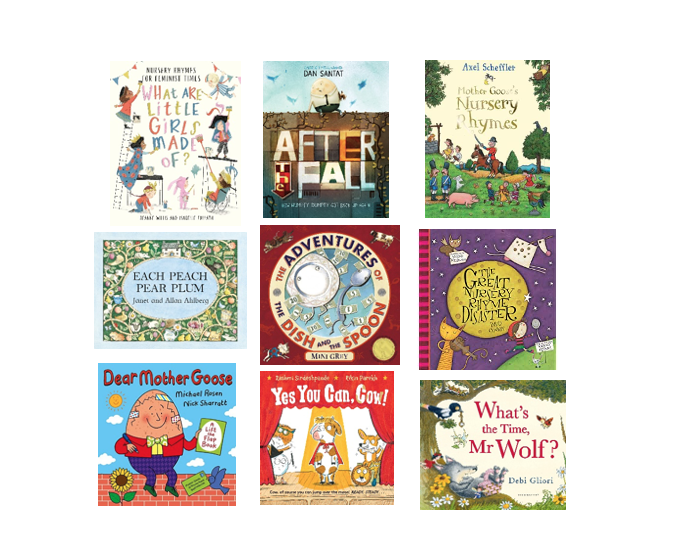
- How can you support families to share nursery rhymes at home with their child?
My daughter is in nursery and her school has recently started up a Nursery Rhyme Bag, which goes home with a child to be shared with the family. This is such a lovely idea as it promotes the value of sharing nursery rhymes at home whilst providing the props for parents.
Other options include sharing the rhymes you’ve practiced that week on school newsletters, sending home links for nursery rhyme websites, and giving suggestions for opportune moments when nursery rhymes could be shared – like Twinkle Twinkle before bed, Old MacDonald when visiting the farm, and rhymes about the weather such as It’s Raining It’s Pouring and The Sun Has Got His Hat On.
Enjoy celebrating World Nursery Rhyme Week and remember to share your provision and practice with us on Twitter by tagging in @BrettellHarriet and @OEedDevelopment
If you would like further CPD and training on best practice in EYFS, check out the training we have on offer. Book your places today!

